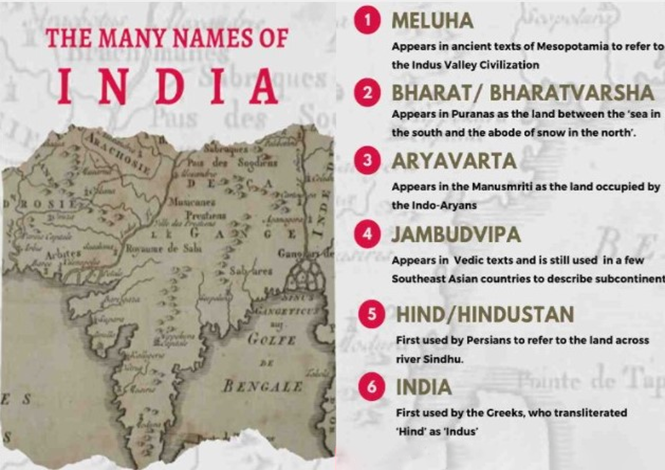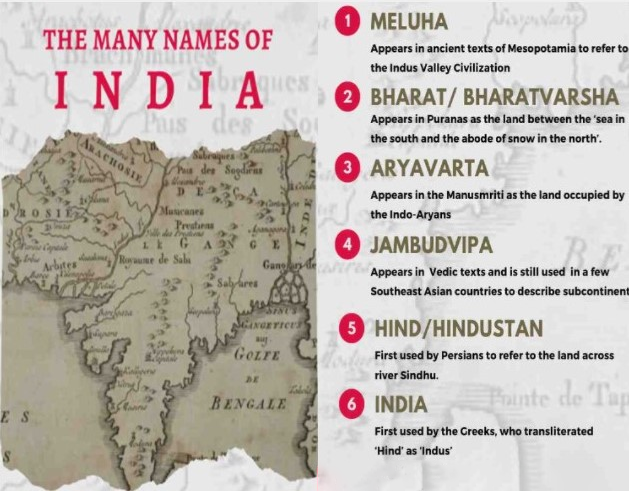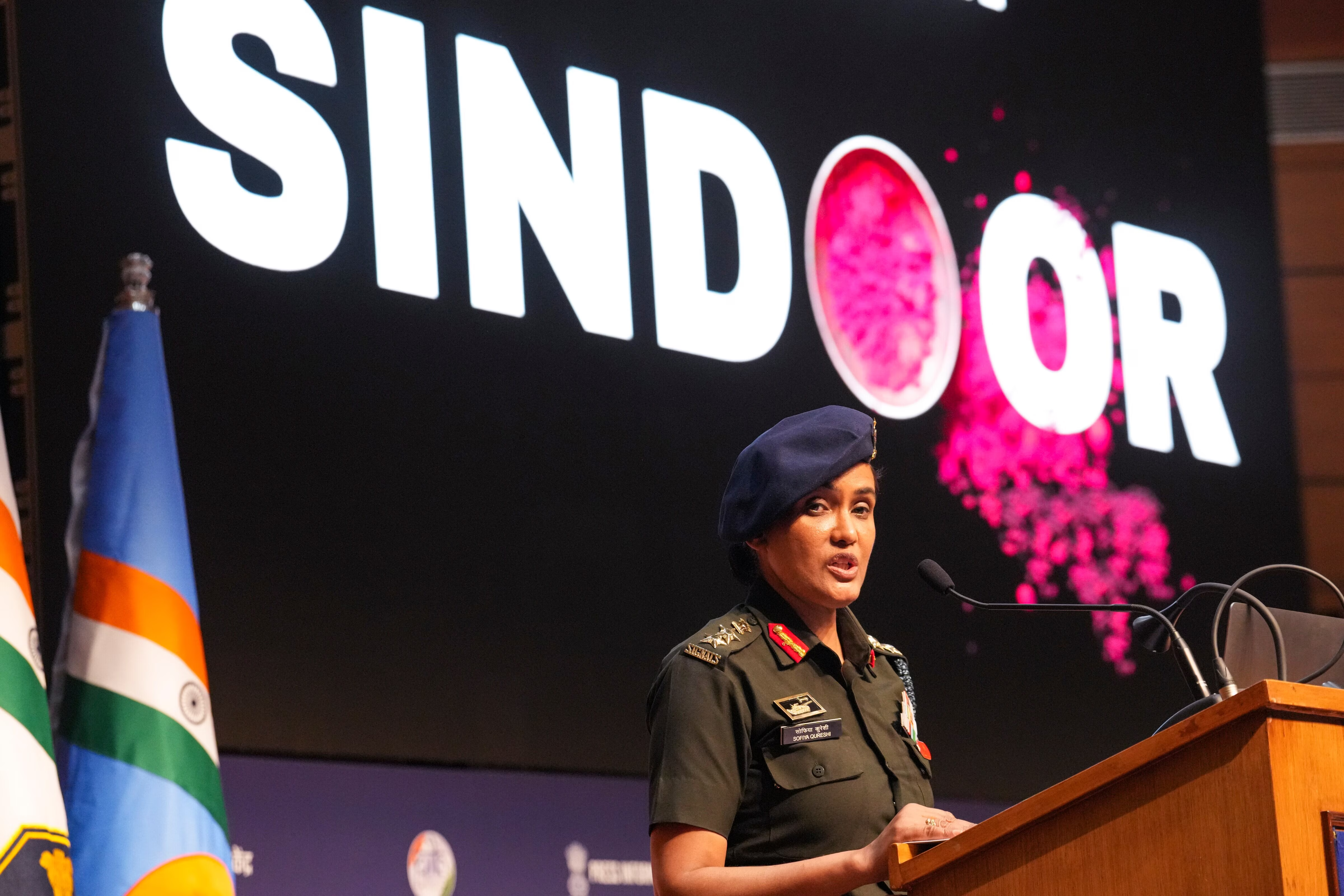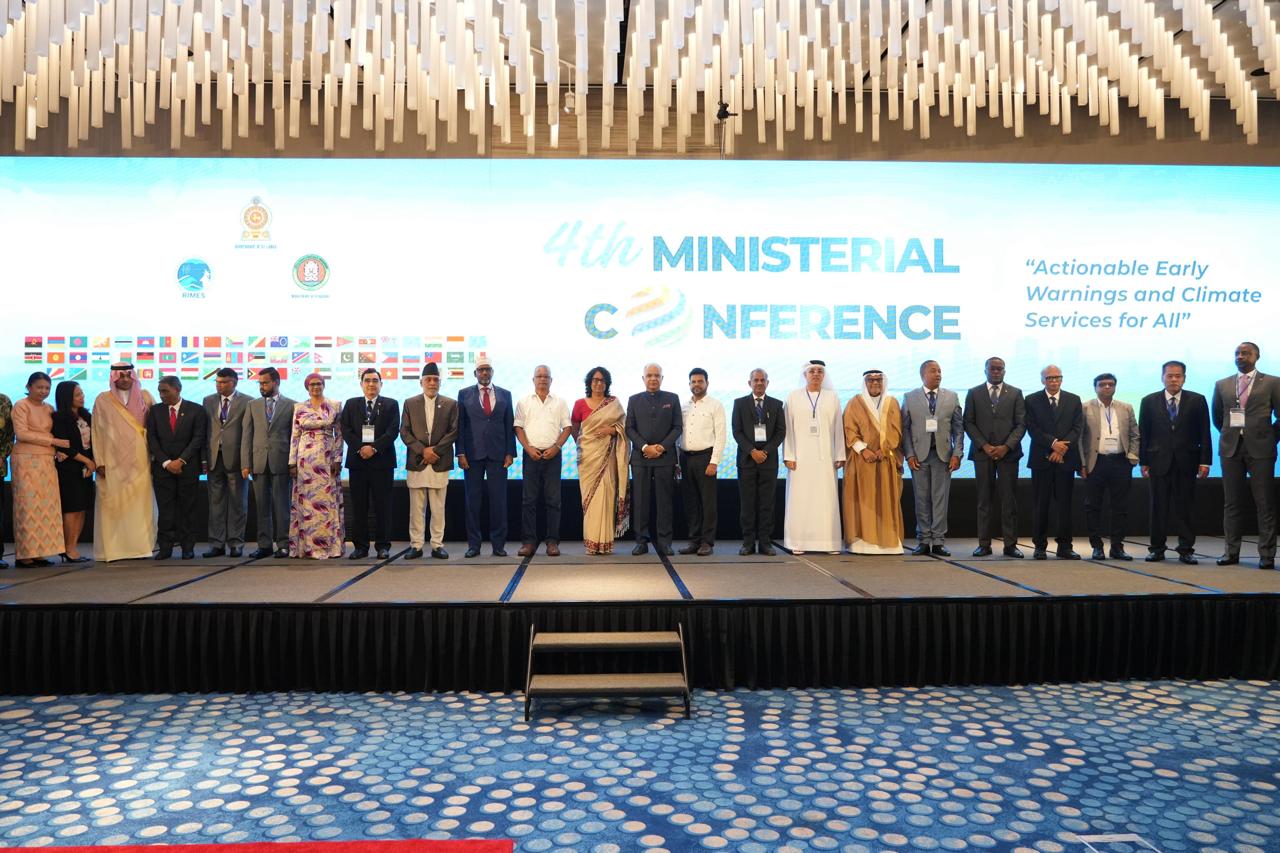- Courses
- GS Full Course 1 Year
- GS Full Course 2 Year
- GS Full Course 3 Year
- GS Full Course Till Selection
- Online Program
- GS Recorded Course
- NCERT (Recorded 500+ Hours)
- Polity Recorded Course
- Geography Recorded Course
- Economy Recorded Course
- AMAC Recorded Course
- Modern India, Post Independence & World History
- Environment Recoded Course
- Governance Recoded Course
- Science & Tech. Recoded Course
- International Relations and Internal Security Recorded Course
- Disaster Management Module Course
- Ethics Recoded Course
- Essay Recoded Course
- Current Affairs Recoded Course
- CSAT
- 5 LAYERED ARJUNA Mentorship
- Public Administration Optional
- ABOUT US
- OUR TOPPERS
- TEST SERIES
- FREE STUDY MATERIAL
- VIDEOS
- CONTACT US
Ongoing debate on ‘India’ and ‘Bharat’
Ongoing debate on ‘India’ and ‘Bharat’
06-09-2023

Latest Context:
Recently, the debates have started when the invitation card of G20 mentioned the term “President of Bharat” instead of “President of India”.

About the historical perspectives on the terms "India" and "Bharat”
India:
- The term "India" is derived from the ancient Greek term "Indus", which referred to the Indus River.
- The Greeks and Persians used this term to describe the land beyond the Indus River. The word "India" gradually evolved from this Greek root.
- During the period of European exploration and colonization, the term "India" was widely used by Europeans to refer to the entire Indian subcontinent, including present-day India, Pakistan, Bangladesh, and parts of Nepal and Myanmar.
- The name "India" became more formalized during British colonial rule in the 19th and 20th centuries. The British used "India" to refer to their colonial possessions on the Indian subcontinent.
- After gaining independence in 1947, the modern Republic of India retained the name "India" as its official name, reflecting its historical usage by the British.
Bharat:
- The name "Bharat" has deep roots in Indian mythology and history.
- It is derived from the Sanskrit term "Bharata", which has several meanings in Hindu tradition.
- In Hindu mythology, "Bharata" was the name of a legendary king and ancestor of the Kuru dynasty, as mentioned in the ancient Indian epic, the Mahabharata.
- "Bharata" is also associated with the concept of "Bharatavarsha" or "Bharatakhand",which refers to the ancient Indian subcontinent. This term appears in various ancient Indian texts and scriptures.
- Over time, "Bharat" became a symbol of India's cultural and historical heritage, and it has been used in various Indian languages and texts to refer to the country.
What the Indian Constitution says on terms "India" and "Bharat"?
- In modern India, both "India" and "Bharat" are used officially.
- The Constitution of India recognizes both names, and Article 1 of the Indian Constitution states that "India, that is Bharat, shall be a Union of States." This reflects the dual nomenclature of the country, acknowledging its historical and cultural diversity.
- "India" is often used in English and for international purposes, while "Bharat" is more commonly used in Indian languages and in the context of traditional and cultural references.



